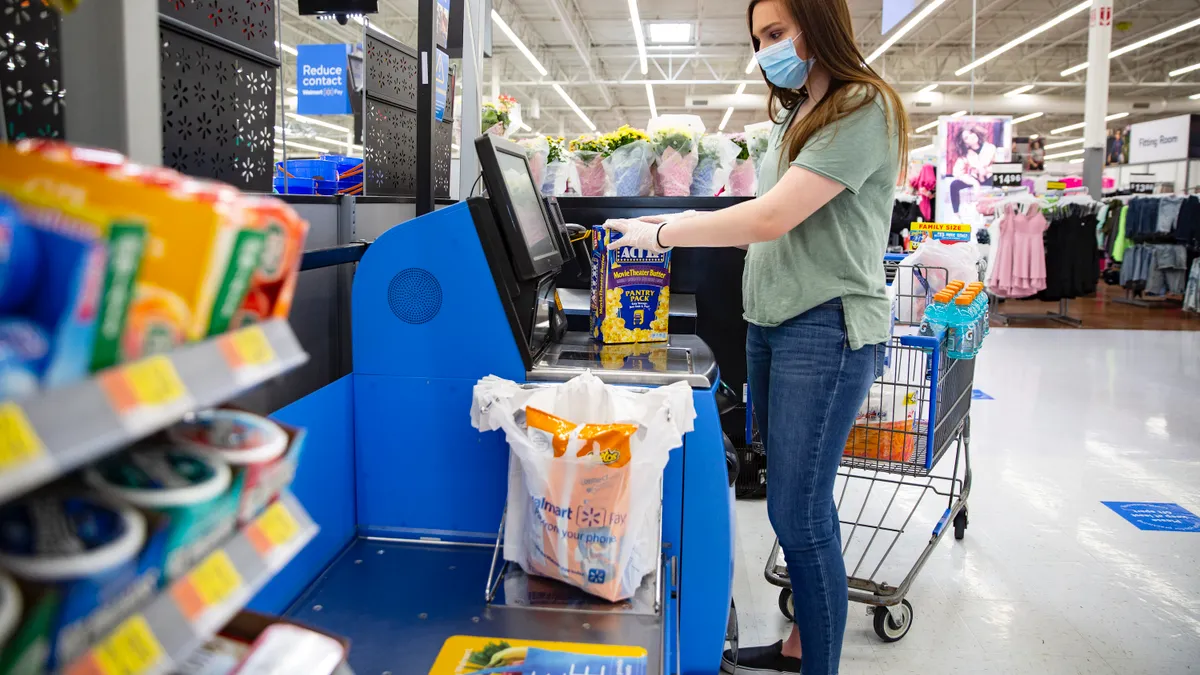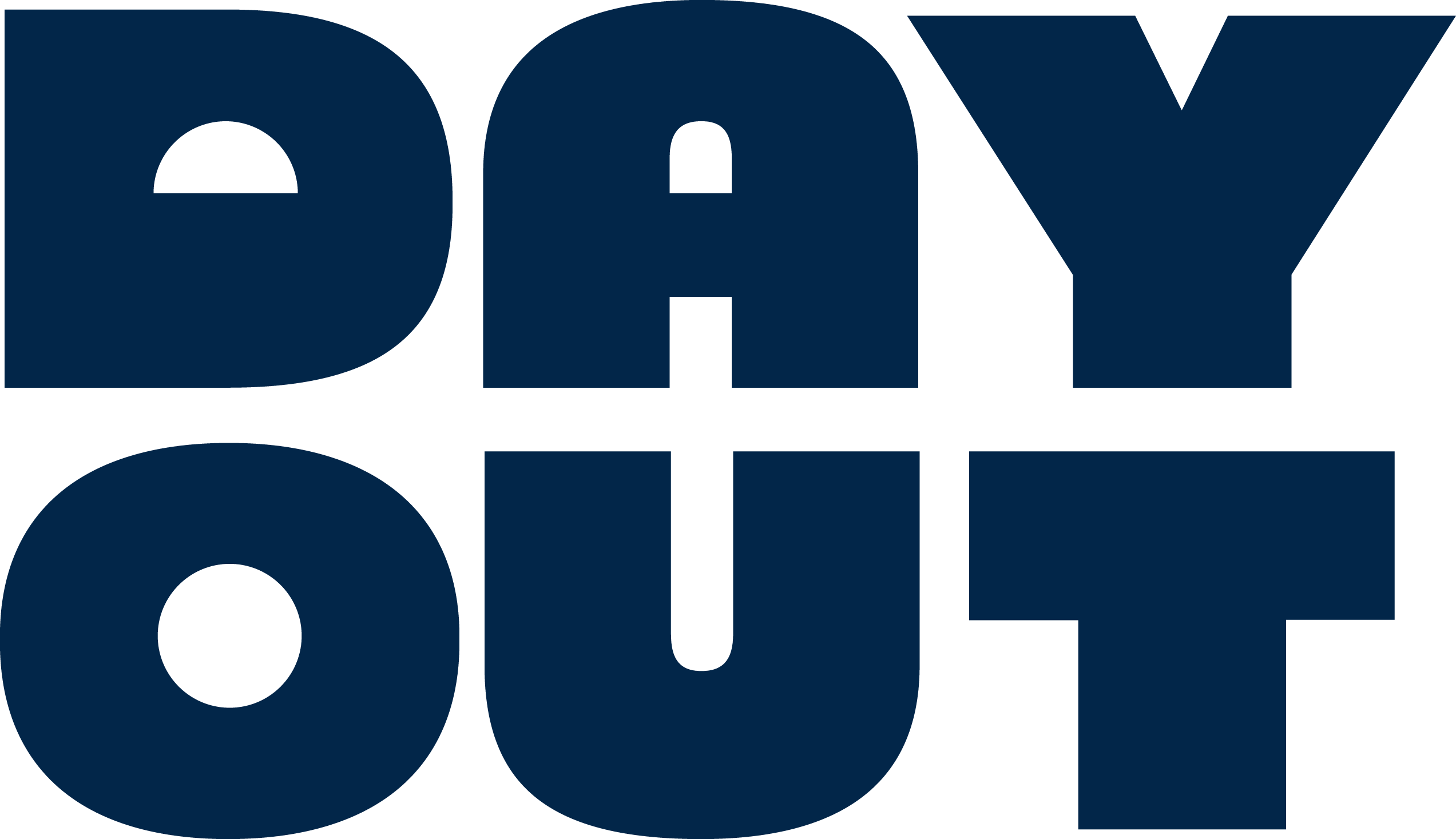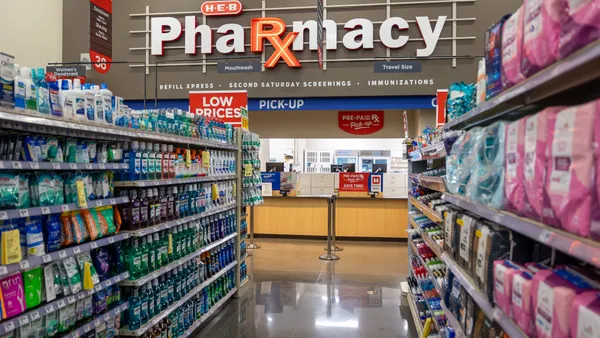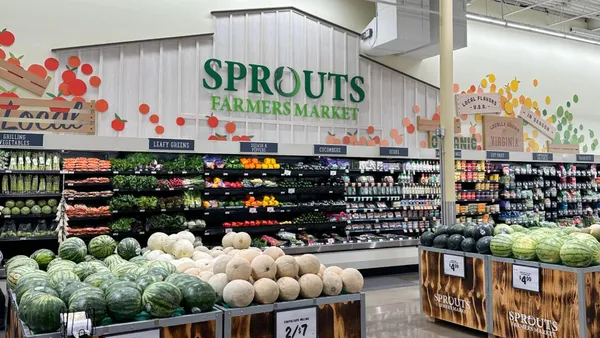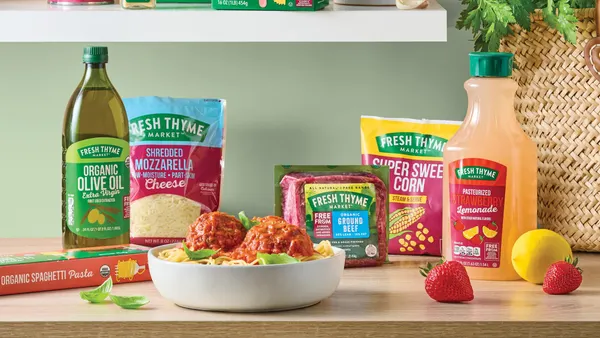Dive Brief:
- As infections surge across the U.S., the United Food and Commercial Workers International Union (UFCW) is calling on retailers to reintroduce hazard pay and paid sick leave for grocery workers, offer them free COVID-19 tests and personal protective equipment, and require all shoppers to wear masks.
- The organization said at least 350 of its members, including 109 grocery workers, have died due to the coronavirus and that over 17,400 grocery workers have been infected or exposed to the virus.
- Although workers and companies have been living with the virus for nearly nine months, it is now spreading more rapidly than ever, raising fears among consumers and frontline workers. “Right now America’s essential workers are facing a holiday season of an unparalleled level of risk and threat from this growing pandemic," Marc Perrone, UFCW International president, said during a press call this week. "We’re entering what could prove to be the riskiest, deadliest phase of this pandemic.”
Dive Insight:
Retail workers, executives and shoppers have all grown accustomed to living with the virus. And for a few months the industry has returned its focus to core growth and merchandising strategies. But the latest surge promises to bring safety and supply chain issues back to the forefront.
Perrone said retailers have grown lax with their safety standards, noting many aren’t enforcing mask-wearing requirements or have dropped them entirely following a summer that saw Kroger, Walmart and other chains stipulate face coverings for anyone entering their stores.
In a statement provided by the union, a Ralphs worker in California, Rachel Fournier, said the sensor system that’s supposed to alert workers when the store is reaching its capacity limits “does not seem to work at all.” She said the store isn’t enforcing mask wearing or social distancing, either. Another Kroger worker said her store has stopped providing masks to customers at the front door, and instead have put them behind the service counter.
Kroger, which owns the Ralphs chains, noted in a statement distributed to news media, “Our most urgent priority throughout this pandemic has been to provide a safe environment for our associates and customers while meeting our societal obligation to provide open stores, e-commerce solutions and an efficiently operating supply chain.”
Kroger along with other retailers have faced criticism for ending hourly bonuses for workers early in the summer. The company said it has spent more than $1 billion on additional employee pay since March and has paid out $100 gift cards plus 1,000 fuel points to employees in September, and will do so again this month.
In addition to raising pay and protections for workers and tightening safety restrictions for customers, the UFCW is calling on publicly traded retailers like Kroger, Walmart and Ahold Delhaize to forego share buybacks for as long as the pandemic lasts.
Retailers will need to keep a close eye on infection rates in their local communities and tighten their safety measures as needed. Albertsons now requires all of its employees and vendors to submit to a contactless temperature check and health screening, and this week Hy-Vee announced it's reintroducing dedicated shopping hours for seniors and other high-risk shoppers.
States and cities may institute further measures. Washington and Illinois now require retailers to cap the number of customers retailers let in their stores to 25% capacity. Meanwhile, New Mexico is requiring stores that log four or more infected employees in a 14-day period to close for two weeks.
Many companies have reinstituted purchase limits on items like toilet paper and cleaning and have taken measures to ensure they're better prepared than they were in the spring for a wave of online shopping.


